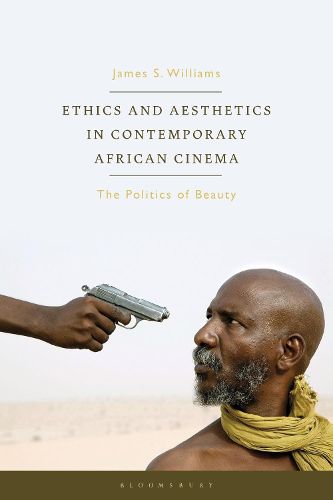Readings Newsletter
Become a Readings Member to make your shopping experience even easier.
Sign in or sign up for free!
You’re not far away from qualifying for FREE standard shipping within Australia
You’ve qualified for FREE standard shipping within Australia
The cart is loading…






Since the beginnings of African cinema, the realm of beauty on screen has been treated with suspicion by directors and critics alike. James S. Williams explores an exciting new generation of African directors, including Abderrahmane Sissako, Mahamat-Saleh Haroun, Fanta Regina Nacro, Alain Gomis, Newton I. Aduaka, Jean-Pierre Bekolo and Mati Diop, who have begun to reassess and embrace the concept of cinematic beauty by not reducing it to ideological critique or the old ideals of pan-Africanism.
Locating the aesthetic within a range of critical fields - the rupturing of narrative spectacle and violence by montage, the archives of the everyday in the ‘afropolis’, the plurivocal mysteries of sound and language, male intimacy and desire, the borderzones of migration and transcultural drift - this study reveals the possibility for new, non-conceptual kinds of beauty in African cinema: abstract, material, migrant, erotic, convulsive, queer. Through close readings of key works such as Life on Earth (1998), The Night of Truth (2004), Bamako (2006), Daratt (Dry Season) (2006), A Screaming Man (2010), Tey (Today) (2012), The Pirogue (2012), Mille soleils (2013) and Timbuktu (2014), Williams argues that contemporary African filmmakers are proposing propitious, ethical forms of relationality and intersubjectivity. These stimulate new modes of cultural resistance and transformation that serve to redefine the transnational and the cosmopolitan as well as the very notion of the political in postcolonial art cinema.
$9.00 standard shipping within Australia
FREE standard shipping within Australia for orders over $100.00
Express & International shipping calculated at checkout
Stock availability can be subject to change without notice. We recommend calling the shop or contacting our online team to check availability of low stock items. Please see our Shopping Online page for more details.
Since the beginnings of African cinema, the realm of beauty on screen has been treated with suspicion by directors and critics alike. James S. Williams explores an exciting new generation of African directors, including Abderrahmane Sissako, Mahamat-Saleh Haroun, Fanta Regina Nacro, Alain Gomis, Newton I. Aduaka, Jean-Pierre Bekolo and Mati Diop, who have begun to reassess and embrace the concept of cinematic beauty by not reducing it to ideological critique or the old ideals of pan-Africanism.
Locating the aesthetic within a range of critical fields - the rupturing of narrative spectacle and violence by montage, the archives of the everyday in the ‘afropolis’, the plurivocal mysteries of sound and language, male intimacy and desire, the borderzones of migration and transcultural drift - this study reveals the possibility for new, non-conceptual kinds of beauty in African cinema: abstract, material, migrant, erotic, convulsive, queer. Through close readings of key works such as Life on Earth (1998), The Night of Truth (2004), Bamako (2006), Daratt (Dry Season) (2006), A Screaming Man (2010), Tey (Today) (2012), The Pirogue (2012), Mille soleils (2013) and Timbuktu (2014), Williams argues that contemporary African filmmakers are proposing propitious, ethical forms of relationality and intersubjectivity. These stimulate new modes of cultural resistance and transformation that serve to redefine the transnational and the cosmopolitan as well as the very notion of the political in postcolonial art cinema.